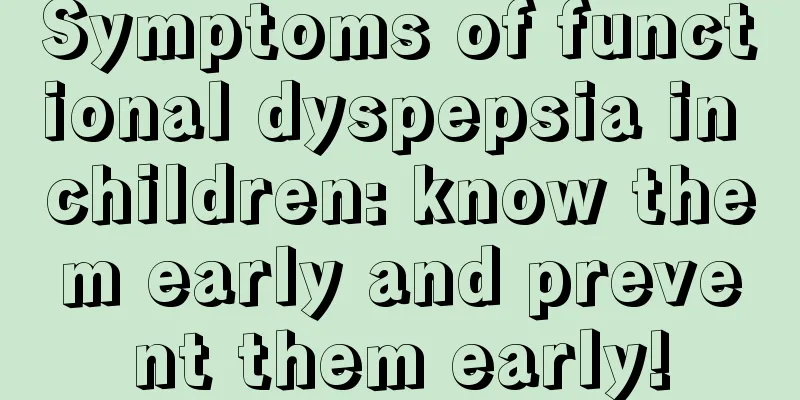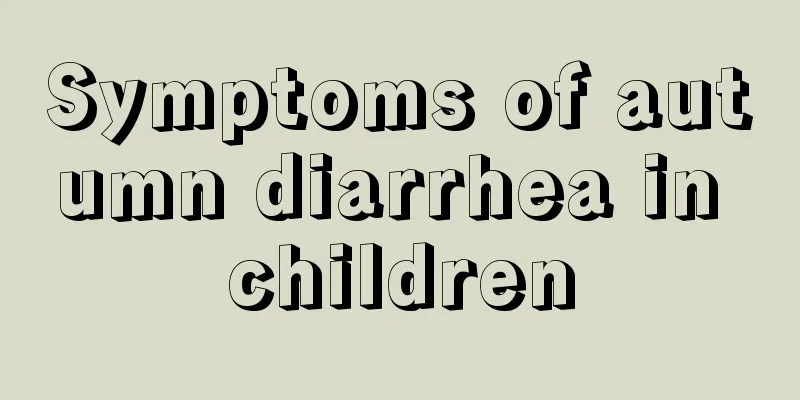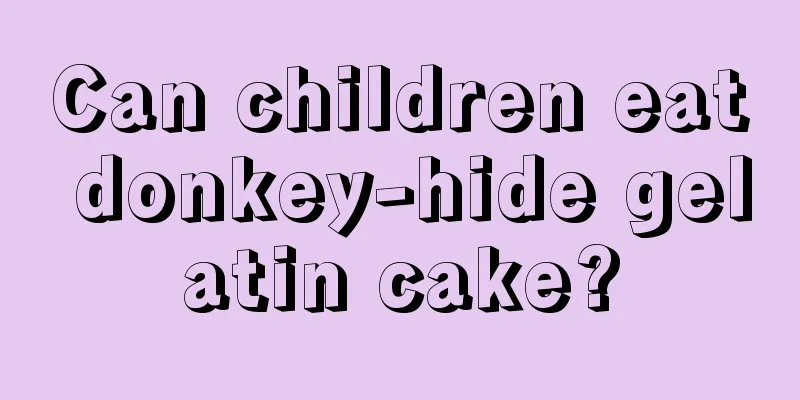When do baby teeth change?

|
When children reach a certain age, their deciduous teeth will fall out and new teeth will grow. In medicine, this process is often called deciduous tooth replacement. The time of replacement can be early or late. There are usually many reasons that can affect the replacement of deciduous teeth, such as malnutrition, calcium deficiency, etc. Below, the editor will introduce how to care for most children when their deciduous teeth are replaced. How to take care of children when they change their teeth Children usually start to lose their teeth around the age of 6. The replacement of deciduous teeth is divided into two processes: one is "deciduous tooth shedding", that is, the deciduous teeth gradually loosen until they fall out. The second process is the "eruption of permanent teeth", that is, as the deciduous teeth fall out one by one, the permanent teeth will erupt one by one. The process of replacing the entire mouth of deciduous teeth takes about 6 years, which means that the entire tooth replacement process is completed when the child is about 12 years old. By the age of 12, all of a child's deciduous teeth should have fallen out and been replaced by permanent teeth. If a child is over 12 years old and still has deciduous teeth in his mouth, he should go to the hospital for treatment. 1. Eat more chewy foods when changing teeth When children are about six or seven years old, permanent teeth begin to erupt and replace the original deciduous teeth. Although some children's permanent teeth have erupted, the deciduous teeth often refuse to "give way", forcing the permanent teeth to grow from the inside of the deciduous teeth, forming "double-layer teeth" and causing the permanent teeth to be unevenly arranged. There are many reasons for the delayed loss of deciduous teeth. The most common one is that children eat too finely and do not fully utilize the physiological stimulation of their teeth. The main function of teeth is to chew food. Chewing food can promote the growth and development of the roots of deciduous teeth as well as their natural absorption and shedding. Therefore, as children grow older, they should eat more chewy foods to maintain good stimulation to the deciduous teeth and encourage them to fall out on time. When the child's incisors and molars have erupted, you can add some celery, corn, apples and other foods to his or her diet to help the tooth replacement go smoothly and give your child a healthy and neat set of teeth. When children are in the period of tooth replacement, they should also pay attention to oral hygiene. If they find certain problems with tooth growth, they should see a dentist in time to avoid problems such as tooth deformities due to certain reasons. Try not to eat too sweet food in daily life, and eat more foods with high vitamin content. |
<<: Is it good for children to drink milk on an empty stomach?
>>: What are the symptoms of heart disease in children?
Recommend
How should scrotal hernia in children be treated?
It is very normal for newborns to have hernias. I...
What are the causes of indigestion in infants?
We all know that the baby's digestive ability...
What are the symptoms of precocious puberty in children?
Society is progressing, but what worries everyone...
Is it good for children to drink milk on an empty stomach?
Children are the hope of the motherland. Children...
Can babies eat shrimp when they have a fever?
A baby's fever is a symptom that worries pare...
Can babies get heat stroke?
Heatstroke is very likely to occur in the summer,...
What are the symptoms of zinc deficiency in my son?
Having a well-behaved and obedient baby at home i...
What causes skin peeling on children's fingers?
In fact, some skin diseases can also cause peelin...
What are the reasons why children have fever but no fever?
For infants and young children, because they are ...
What is the cause of baby's white blood cell infection?
As children grow up, their bodies are in the deve...
What should I do if my child has a fever of 38 degrees?
Medically speaking, there are two explanations fo...
What causes a child's face to turn yellow?
The health status of a baby can be reflected in h...
What should I do if my child has an itchy throat and coughs?
Many people must have encountered the situation o...
What are the folk remedies for treating babies' long-term cough?
What are some folk remedies for treating a baby’s...
Birthmarks on baby
Babies are the little angels of every family. If ...









